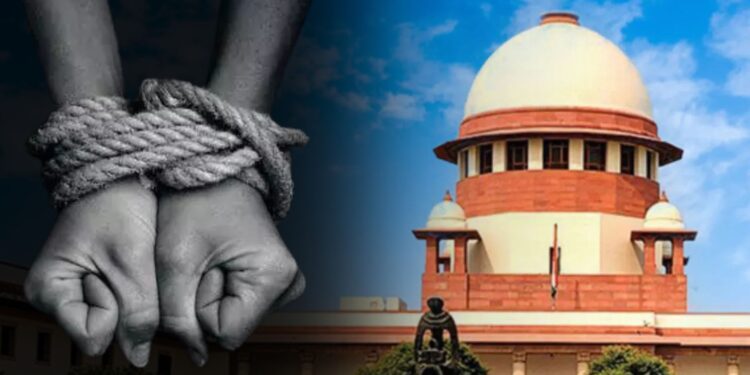On Tuesday, the Supreme Court reserved its verdict on a petition seeking the establishment of a comprehensive rehabilitation framework and the enhancement of victim protection protocols for survivors of sex trafficking [Prajwala v. Union of India and Others].
The Bench, comprising Justices JB Pardiwala and R Mahadevan, assured that the Court would take a strong stand on the matter, emphasizing their commitment to safeguarding the rights of trafficking victims. Justice Pardiwala, addressing Senior Advocate Aparna Bhat, who represented the petitioner, Prajwala, said, “We assure you that we would be taking it very seriously. We have to protect the society. We have to protect the victims. We will try our level best to do that.”
The petition sought to ensure compliance with a 2015 ruling, which had directed the Centre to set up an Organised Crime Investigating Agency (OCIA) and strengthen the protocols for victim protection in cases of sex trafficking. In the past hearings, the Court had highlighted the devastating consequences of human trafficking, particularly the vulnerability of women and children. It stressed the need for robust measures to ensure their protection and rehabilitation.
On Tuesday, Senior Advocate Bhat argued that a structured institutional framework to address human trafficking was still lacking. She emphasized that sex trafficking must be recognized as an “organized crime,” as per the government’s commitment in the 2015 order. Bhat pointed out that the Ministry of Home Affairs had set up Anti-Trafficking Units in 2016 to handle such cases. However, these units often lacked police authority, hindering their ability to register FIRs and take appropriate action.
She contended that the Centre could not retract its earlier stance on establishing the OCIA, noting that this was a crucial commitment made by the government to address the issue of trafficking effectively.
In response, Additional Solicitor General Aishwarya Bhati, representing the Central government, argued that the recently enacted Bharatiya Nyaya Sanhita, 2023 (BNS), already contains provisions to address sex trafficking crimes. Bhati also highlighted that there are 827 Anti-Trafficking Units operational across the country, and many of these units collaborate with NGOs. She further pointed out that 14,000 women’s helplines have been established with funds from the Nirbhaya Fund and that over 200 crores had been allocated to states for implementing compensation schemes for trafficked victims.
Additionally, Bhati explained that shelter homes for trafficking victims are funded through a 60-40 split between the Central government and the states.
After hearing the arguments from both sides, the Court reserved its judgment. The matter remains critical, with the Court acknowledging the gravity of human trafficking and emphasizing the need for comprehensive action to protect and rehabilitate victims of sex trafficking.

















